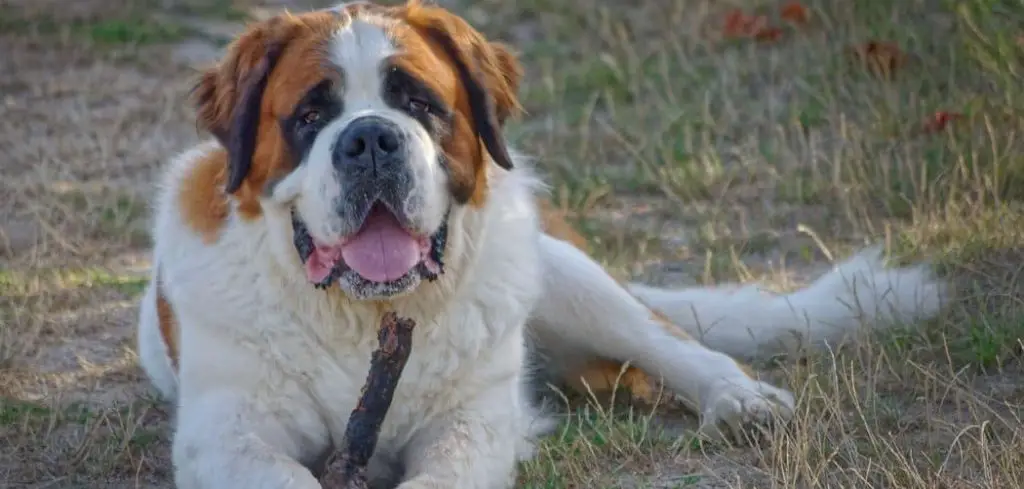If your dog is panting and constantly licking, it may be more than just quirky behavior—it could be a sign of discomfort, stress, or an underlying medical condition. These repetitive behaviors often indicate your dog is trying to self-soothe, manage pain, or respond to irritation.
We outline the common causes of dog panting and constantly licking, what you can do at home, and when to seek veterinary help.
Dog Panting and Constantly Licking — Why It Happens
Panting combined with constant licking usually signals that your dog is in physical or emotional distress. Dogs lick themselves—or objects—as a coping mechanism, and when paired with panting, it often means they’re dealing with pain, anxiety, or nausea.

Common Causes of Dog Panting and Constantly Licking
Nausea or Gastrointestinal Upset
Nausea often causes dogs to lick their lips, the air, or nearby surfaces as they try to manage the sensation.
Panting can accompany nausea due to the associated discomfort.
Dogs may also drool, pace, eat grass, or act restless.
Causes range from dietary indiscretion to more serious GI issues like pancreatitis or gastritis.
Feeding a bland diet, offering small amounts of water, and monitoring symptoms can help—though persistent signs need vet evaluation.
Anxiety or Compulsive Behavior
Dogs under stress often develop repetitive behaviors like constant licking—either of themselves, furniture, or their owners.
Panting is another telltale sign of canine anxiety.
Common triggers include being left alone, loud noises, or disruptions to routine.
This behavior can escalate into canine compulsive disorder if left unaddressed.
Enrichment activities, calming routines, and in some cases, anxiety medication may be needed to manage the issue.
Read more: Dog Panting and Licking Lips (Could it be nausea or stress?)
Pain or Discomfort (Especially in Joints or Abdomen)
Dogs may lick certain areas of their body—like joints, paws, or flanks—when in pain.
Panting is a general pain response, especially if your dog is also restless or unable to get comfortable.
Arthritis, injury, or even internal discomfort like bloat can trigger these symptoms.
If your dog focuses licking on one area, it may help pinpoint the source of pain.
A thorough vet exam and possibly imaging (like X-rays) are often needed.
Skin Allergies or Irritations
If licking is focused on paws, legs, or belly, skin irritation may be the culprit.
Allergies to food, grass, dust mites, or fleas often cause intense itchiness.
Panting can occur if the dog is uncomfortable or restless from the constant irritation.
Look for red, inflamed areas, hair loss, or constant chewing at one spot.
Allergy testing, antihistamines, medicated baths, or dietary changes may be recommended.
Dental Pain or Oral Issues
Oral discomfort can cause excessive licking, lip smacking, and panting.
Issues like infected teeth, gum disease, or oral injuries may make it painful to chew or swallow.
Your dog may also paw at their mouth, drool, or avoid eating hard food.
A dental exam, and possibly dental cleaning or extractions, can relieve the discomfort.
What to Do If Your Dog Is Panting and Constantly Licking
Observe your dog closely to see what they’re licking—if it’s a specific body part or random surfaces.
Gently inspect their mouth, paws, and skin for visible signs of irritation, injury, or infection.
Keep your dog calm and discourage obsessive licking with redirection techniques or protective gear (like a cone or booties).
Provide a clean, comfortable space and remove known allergens or irritants.
Track when the symptoms began and how frequently they occur—this will help your vet identify patterns.
When to Call or Visit Your Vet
Contact your vet if your dog:
Pants and licks excessively for more than 24 hours
Licks one specific area repeatedly (may indicate localized pain or infection)
Shows signs of nausea, vomiting, or loss of appetite
Has swollen or red skin, bleeding, or hair loss from licking
Displays signs of distress, pacing, or obsessive behavior
Early intervention can prevent conditions from worsening or becoming chronic.
Read more: Dog Panting and Anxious (Causes and what to do)
Key Takeaway
If your dog is panting and constantly licking, it’s time to investigate what’s behind these behaviors.
Whether it’s nausea, anxiety, allergies, or pain, these are clear signs your dog needs support.
Work with your veterinarian to pinpoint the cause and provide relief—your dog will thank you with comfort and calm.
